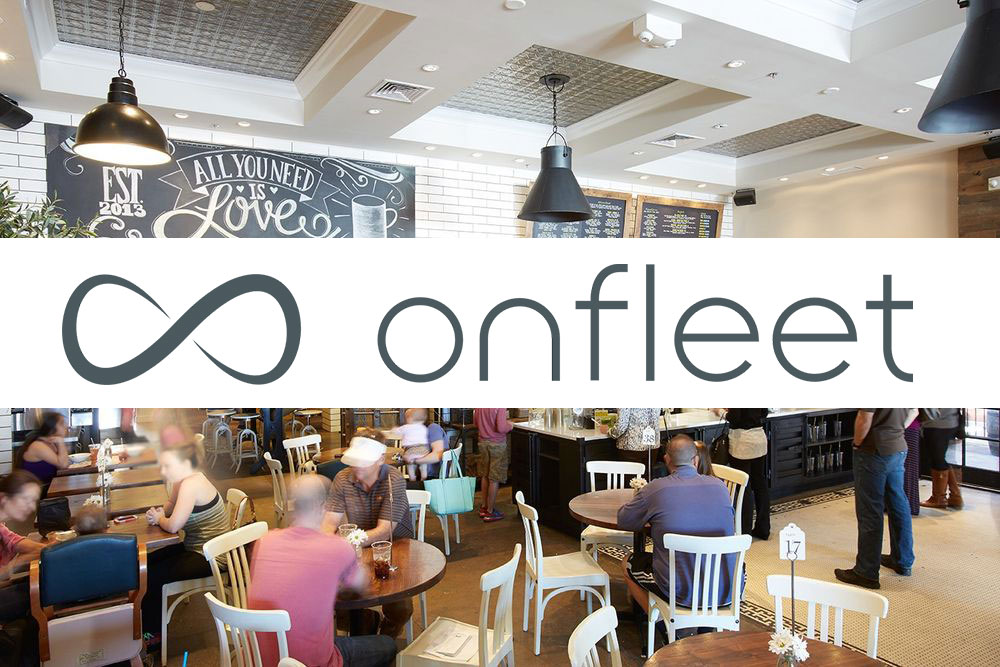Pushed along by companies large and small, last-mile software provider Onfleet has eclipsed 100 million orders of everything from food, wine, car parts and marijuana. That big number has been a long time coming, with small delivery upstarts expanding along with the company and new entrants like ChopShop pushing it further.
The company secured a Series A round in October of 2020, but according to Director of Marketing Liz Tahawi, it’s been steady growth, not a pandemic-era surge.
“We’re celebrating our 100-millionth delivery, but it’s coupled with that compound growth. We’ve been around since 2015, and ever year we’ve doubled our revenue, and every year that gets a little harder,” said Tahawi. “We’ve been profitable since 2018. So, we’re not this case of this Series D burning through money to have growth.”
She said ongoing growth and profitability provides a strong foundation for the company, which provides a lot of logistics software so restaurants, retailers and other companies can do their own deliveries. Building on top of that are a lot of new COVID-era habits that are hard to break. She said there have been a lot more companies jumping on board.
“In March and April, we saw a huge spike in demand where we onboarded a lot of customers and sustained that,” said Tahawi. “Just like our revenue, it’s a slope that goes up to the right. As you add numbers, the slope becomes more dramatic. It’s not a spike, but just a building sustaining growth.”
She said the company grew from about 1,000 customers to about 1,200 in 90 countries with a lot of new growth in North America. The new customers are great, but there’s the old adage that rings true for the company: “New friends are silver, old friends are gold.” She points to pioneers in the space for pushing the company to 100 million deliveries.
One such partner is Imperfect Foods, it started a pilot in Portland, selling sell less-than attractive produce by the box; now it’s in 40 states. FitFul, which has delivered prepared meals to events since 2010 is another. Companies like that jumped into the delivery segment early and made it a core competency.
She pointed to the multi-concept operators that oversee ChopShop and Bellagreen as another forward-looking company that saw delivery as a powerful channel before the pandemic, which set them up for success in 2020 and today.
“Those guys are really interesting. Early on, they made investments with Olo, then with Onfleet and with retaining their staff during the pandemic, and not letting them go, turning them into delivery drivers,” said Tahawi.
Small Company Goes Big on Self Delivery
ChopShop and Bellagreen CEO Jason Morgan said he could see the power of tools like Olo and Onfleet, and wanted to get them into his company as soon as possible. The former CFO of Zoës
Kitchen said it was a hard decision to spend the money on such enterprise technology for, at the time, a 10-location operation, and a hard sell to Olo itself. For a small company, this is some pretty serious technology. Olo doesn’t typically work with brands smaller than 100 locations.
“They came up with a pretty substantial fee, about three times what I should have paid, but what they had was the Dispatch product,” said Morgan, referring to Olo’s tool that bids out delivery orders to the various delivery platforms.
That helped the company make delivery efficient, then COVID hit and they took another look at the operation.
“When COVID hit, we had all these extra employees. We asked, ‘What happens if we just turn Dispatch off?’ We did that for a couple weeks and we saw our deliveries double through Olo,” said Morgan. “We went to Olo and asked, ‘Who do you have that can do last-mile delivery?’ We interviewed and Onfleet was the best by far.”
Company VP of IT Adam Griffith, a former director at Smoothie King, led the integration and made the first deliveries.
“One of the things we really enjoyed working with Onfleet is they took a lot of feedback from us. We’re a smaller group, but we have a lot of experience. When we reached out to them, they had a very big retail focus. We said, ‘Look, these are the things we need to look at.’ We don’t want people sitting in front of the management console the whole time,” said Griffith. “There were many late nights, a lot of testing. The first drive was me showing up in a mask to a local doctor’s office.”
The company built procedures around delivery, divvied out roles (a couple drivers at lunch and dinner) and had their operation working by May of 2020. Prior to the pandemic, ChopShop was 55 percent off premises, since then, it’s 75 percent. Half of the off-premises sales are coming in digitally and 75 percent of digital sales are going right to the company.
“Up until the labor shortage, we were consistently delivering 85 percent of direct orders to us,” said Morgan. “Maybe 12 order a day per store, but it’s enough to keep going.”
He said sales compared to 2019 are up 32 percent at ChopShop and 17 percent at Bellagreen. He credits the expanded delivery and digital ordering as the company caters to all new habits around off-premises operations.
While the company is still under 30 locations, doing their own delivery, even 10 to 15 orders a day, have the potential to change the delivery landscape. Morgan said that’s something customers are eager to help with as well, they’ve bought into the benefit of in-house delivery that Mortan shouts from the social media mountaintop.
“If we ever had a chance to compete against third-party, this is the chance. We went super aggressive. We spoke to that in our social posts, we were crazy aggressive,” said Morgan.


